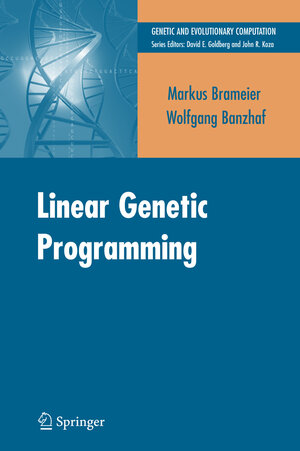
From the reviews:
„This is a very good book. It provides a well organized description of linear genetic programming (LGP). Much material, previously only available in research papers, has been consolidated, reorganized and extended for this book. … This book is primarily for the evolutionary computing researcher … . Post graduate students in genetic programming should read this book … . The book should be in university libraries. Considering the cost of many books these days this one is very well priced for its size and content.“ (Vic Ciesielski, Genetic Programming and Evolvable Machines, Vol. 9, 2008)
„This book addresses a subfield of genetic programming, where solutions are represented by a sequence of instructions in an imperative programming language, such as C. Genetic programming is an iterative search algorithm based loosely on the concepts of biological evolution. … Brameier and Banzhaf present a thorough overview that will serve as an excellent resource for graduate students, academics, and practitioners, who choose to work with linear genetic programming.“ (Steven Gustafson, ACM Computing Reviews, Vol. 49 (8), August, 2008)
Linear Genetic Programming presents a variant of genetic programming (GP) that evolves imperative computer programs as linear sequences of instructions, in contrast to the more traditional functional expressions or syntax trees. Primary characteristics of linear program structure are exploited to achieve acceleration of both execution time and evolutionary progress. Online analysis and optimization of program code lead to more efficient techniques and contribute to a better understanding of the method and its parameters. In particular, the reduction of structural variation step size and non-effective variations play a key role in finding higher quality and less complex solutions. Typical GP phenomena, such as non-effective code, neutral variations, and code growth are investigated from the perspective of linear GP.
This book serves as a reference for researchers; it also contains sufficient introductory material for students and those who are new to the field.



